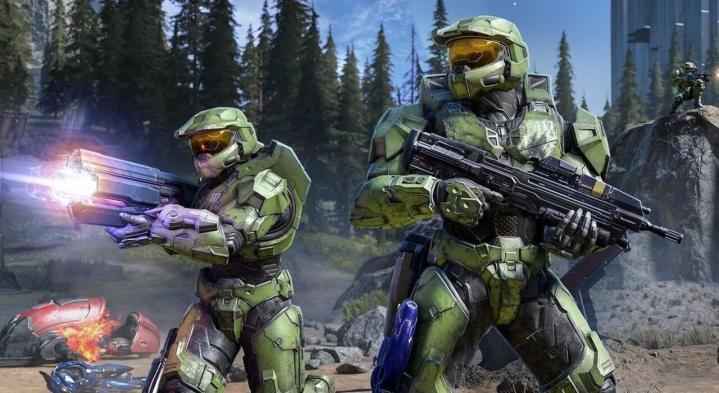We were first introduced to the world of Halo with the launch of the Xbox in 2001. That one game became an instant classic and one of the best original Xbox games ever made, allowing Xbox to compete with the likes of PlayStation and Nintendo. Thanks to the massive universe that game set up, plus the ending teasing more to the Master Chief’s story, it was only a matter of time before we got more Halo games. Over 20 years later, there are about a dozen games in the series, but only five are numbered. If you were to simply follow the mainline games, you would be missing out on huge swaths of the story.
Sure, Halo is just as much about multiplayer as it is the campaign, but the best Halo games have both a strong multiplayer offering and a compelling story. With lore dating back before the dawn of humanity and stretching into the far future, there’s a lot more to Halo than just shooting aliens. Let’s go full circle and list all the Halo games in order of release date and chronologically.
All Halo games in release order

Despite how big Halo is, even rivaling the best Call of Duty games of the time, there are only 12 games in the series that fit into the timeline (not counting remakes or remasters).
If you just want to play Halo in the order the games came out in, this is what order you should play in.
- Halo: Combat Evolved (2001)
- Halo 2 (2004)
- Halo 3 (2007)
- Halo Wars (2009)
- Halo 3: ODST (2010)
- Halo: Reach (2010)
- Halo 4 (2012)
- Halo: Spartan Assault (2013)
- Halo: Spartan Strike (2015)
- Halo 5: Guardians (2015)
- Halo Wars 2 (2017)
- Halo Infinite (2021)
All Halo games in chronological order

The chronology in Halo is very important. This series spans multiple decades from the earliest point in the timeline to the last, with plenty of alliances, betrayals, and new factions entering and exiting the mix. While Spartan Assault and Spartan Strike don’t add much to the overall narrative, they do include some important people and places that die-hard fans will want to know about.
On the other hand, the Halo Wars series has ended up becoming essential for understanding the core plot in later titles. Outside of reading the novels, playing the games in chronological order is the best way to understand the full scope of what’s happening in the Halo universe.
- Halo Wars (2531)
- Halo: Reach (2552)
- Halo: Combat Evolved (2552)
- Halo 2 (2552)
- Halo 3: ODST (2552)
- Halo 3 (2552-2553)
- Halo: Spartan Assault (2554)
- Halo 4 (2557)
- Halo: Spartan Strike (2557)
- Halo 5: Guardians (2558)
- Halo Wars 2 (2559)
- Halo Infinite (2560)




